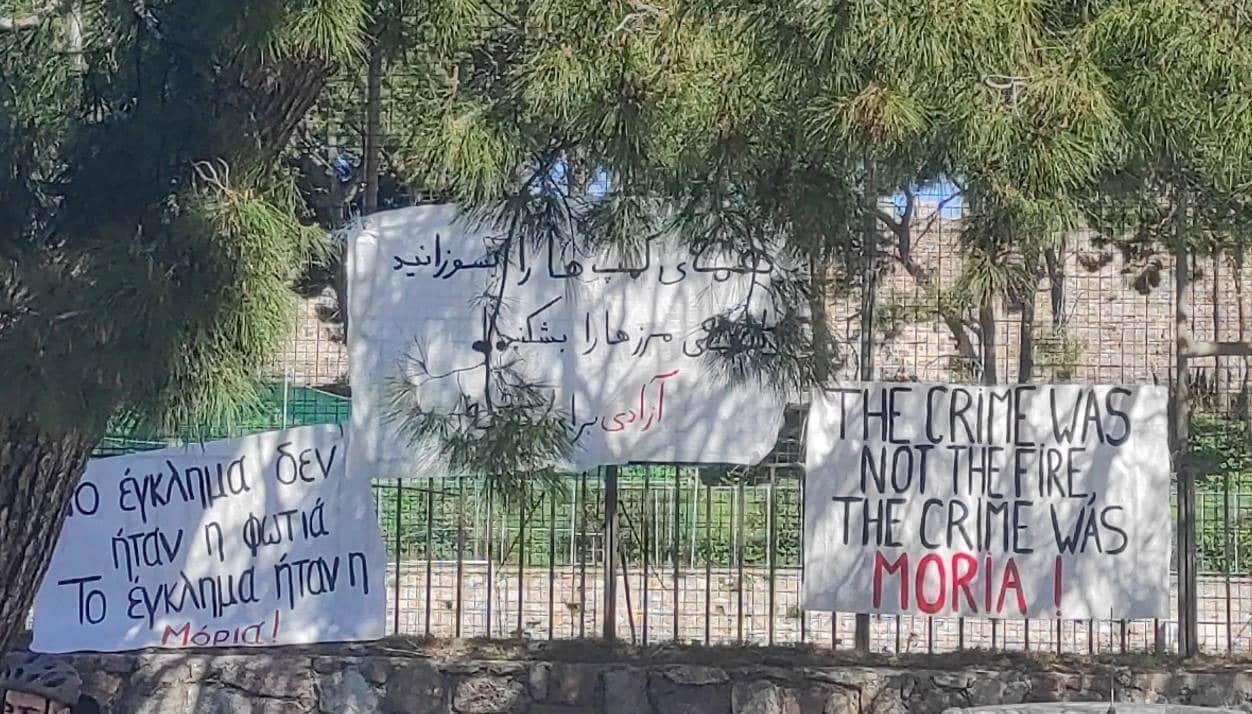cpt.org | 30 March 2024
The “Moria 6” Appeal Court
On 4 March, in front of the ‘Mixed Jury Appeals Court of Felonies’ four defendants for the “Moria 6” case started their appeal. The four young men were charged with “arson in conjunction with others, that endangered life and caused serious damages in facilities of common interest.” All four of them had already been held for one year in pre-trial detention, and another 2.5 years in prison after their conviction at the first trial.
The procedure
After the first adjournment, the trial continued on 6 March. The lawyers for the defendants filed three appeals in cassation and for annulment, due to the inconsistencies of the interrogation procedure. More specifically, they asked for the annulment of the procedure since the indictment wasn’t delivered to the defendants in a language they could understand. However, once more, the Greek courts did not consider this a necessary piece of the trial, although the law provides for it. The second annulment was to contest the presence of a Civil Action attorney, since the interests of the client he was representing were not part of the issues examined in these hearings. Again, the judges decided to allow for his presence throughout the procedure and reexamine the appeal after the presentation of all evidence. However, they could not deny the third appeal for the incompetence of the court, since three of the four defendants were minors at the time of the arson. The evidence presented by their lawyers could not be denied, although the prosecutor sought this. Due to this development, the three defendants were referred to the competent court for minors and were released under restrictive conditions.
The hearings continued with the examination of the witnesses and the rest of the evidence concerning the fourth defendant. Throughout the procedure, the phrasing of the prosecutor demonstrated a hostile and racist attitude toward the defendant’s identity. She kept repeating all the racist narratives of an “alien invasion,” that “[the migrants] should have stayed home anyway,” and “it is the locals who have suffered the most.” Her rhetoric confirmed what many lawyers and human rights organizations have highlighted about the institutional racism encountered in the Greek courts. Most of the time during the appeal, it was evident that the court wasn’t examining the validity of the so-called “evidence” but was searching for the most convenient scapegoat, which in this case, could be found in the young man that was left to be tried. All the evidence presented by the defendants’ lawyers and witnesses was ignored, eventually leading to his conviction. The defendant was held by a majority guilty verdict, with two members of the jury voting for his innocence. After the court examined the mitigation circumstances that were pleaded by the defence, the defendant was sentenced to eight years imprisonment.

